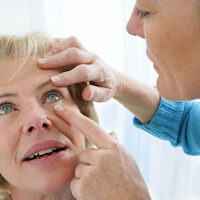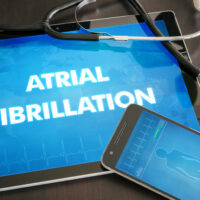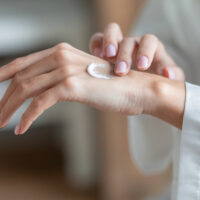9 Lifestyle Mistakes to Avoid to Ensure Good Sleep

Getting a good night’s rest is critical for the mind and body to rejuvenate for the next day. Adults must get a minimum of 7 to 9 hours of sleep every night to maintain a healthy outlook and avoid complications from developing in the future. But there are certain nutrition choices and lifestyle habits that develop inadvertently, whereas others are forced errors that prevent you from getting good sleep. Here are 9 such mistakes to avoid.
Drinking coffee or tea before bed
Drinking tea or coffee at night is not recommended because they contain caffeine, which is a stimulant that can increase metabolism and prevent the body from resting. Drinking these beverages at night will also keep the mind alert as the caffeine stays in the system for a long time where its effects persist. According to experts, it’s best to avoid consuming beverages that contain stimulants, such as coffee or tea, after 6 pm.
Taking a cold shower before bed
The body and mind are trained to respond to the daily routine in a fixed manner. So, taking a cold shower signals the brain that it’s time to wake up and be alert, as most people shower first thing in the morning. Showering at night could mix up the signals and confuse the brain into thinking it’s time to stay alert rather than power down to get rest. This can affect sleep, making it hard to get some shut-eye. Instead, experts suggest taking a hot shower, if necessary, a few hours before bed. Hot water mainly helps the muscles relax and provides a soothing effect beneficial for sleep.
Following an erratic sleep cycle
The body and mind have a set circadian rhythm that controls when we wake up and go to sleep through the release of hormones. At night, the metabolism slows down to allow the organs and vital functions to rest. However, sleeping with no fixed or consistent routine can disrupt this rhythm and trigger problems like insomnia. Therefore, it’s important to establish a consistent bedtime and wake-up time to allow your body’s natural rhythm to adjust to a new routine. Consistency must also be followed on weekends.
Staying plugged in till bedtime
Smartphones, tablets, computers, laptops, and even TVs are major distractions that affect the sleep cycle. Using these devices right up until going to bed forces the brain to retain visual information and stay active long after switching off the devices. These gadgets also emit blue light that stimulates the brain and makes it even harder to fall asleep. Further, watching anything visually stimulating forces the brain to stay alert. So, it’s best to avoid binging content for a few hours before bed and instead focus on habits like reading a book or doing some meditation and deep breathing exercises. Disconnect all electronics and preferably place them out of reach to avoid the temptation of checking notifications.
Working out right before bedtime
Exercising is a good habit as it helps the body relax, boosts mood, and ensures a good night’s sleep. But exercising right before going to bed is not healthy as it affects the sleep cycle. Working out pumps cardiovascular activity and triggers a release of endorphins (feel-good hormones). These triggers activate the metabolism, and it takes a while for the body to cool down. Therefore, it’s never possible to sleep right after working out. Experts recommend working out at least 2-4 hours before, ideally going to bed. For a healthy sleep cycle, it is advisable to engage in light cardio and resistance training during the evenings and schedule more intense workouts such as calisthenics or aerobics for the morning.
Taking naps during the day
Struggling to sleep at night can force naps during the day to compensate for the lost hours. However, sleeping during the day can again mess with the circadian rhythm and make it even more difficult to sleep at night. While short naps are beneficial, long naps that stretch beyond a couple of hours will confuse the body’s internal alarm clock, tricking the mind into thinking it’s still nighttime even though it’s bright out. Untimely sleeping is the number one cause of insomnia, among other health complications.
Going to bed stressed out
Stress is terrible for the body and mind as well. Even the slightest disturbance that causes cortisol levels to shoot up can trigger stress and affect sleep quality. In fact, it’s the number one cause of insomnia among adults. It’s never a good idea to stress out with an intense conversation or go to bed in a foul mood as the mind will be unable to relax and allow the body to power down. Prolonged stress also affects immunity causing hormonal imbalance and changes in metabolism that ultimately affects sleep.
Sleeping with lights on
Even night lights, for that matter, can be distracting, forcing the brain to stay awake after going to bed. Ideally, experts suggest switching off all lights to create a pitch-dark environment for promoting deep sleep. Sensory deprivation can help relax both the body and mind by preventing any external stimuli from triggering them, which can help avoid sleep cycle disruptions. If using light is necessary to overcome the fear of darkness, it’s best to use a low-wattage color bulb placed at an angle that is not too direct to cause a distraction.
Sleeping without proper ventilation
Too much humidity in the air caused by excessive heat can also make it difficult to fall asleep. Also, poor ventilation in the room forces stale air to be circulated, making it difficult to fall asleep. In order to feel more relaxed, it is important to regulate the temperature of the room and keep it cool. To achieve this, adjust the air conditioner to a cool but not too chilly temperature.
Note that the quality of sleep will vary from person to person. So, what works for someone else may not be the right change for you in the long run. It’s always beneficial to consult with a somnologist (a doctor specializing in sleep related disorders) for more pressing complications like sleep apnea or insomnia.





